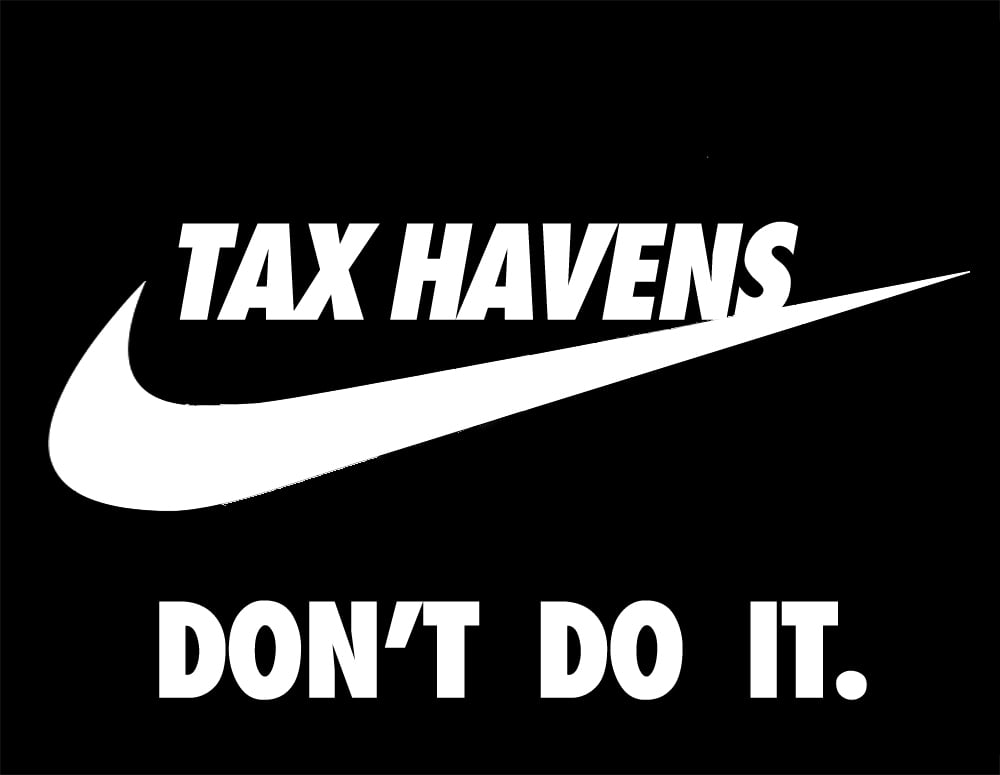It was (allegedly) P.T. Barnum who first said “there’s no such thing as bad publicity.” But the public relations professionals at the Nike Corporation clearly disagree with this maxim. Last week, after multiple media outlets, including the New York Times, wrote about ITEP’s conclusion that Nike avoided federal corporate income taxes under the Trump tax law, the company contacted these news organizations to… change the subject.
The ITEP report, published two weeks ago, found the Oregon-based shoemaker is one of at least 55 large, profitable American corporations that paid no federal income taxes last year despite enjoying substantial U.S. profits. ITEP also found that nearly half of these companies, including Nike, paid no current federal income taxes over the past three combined—that is, the three years during which the Trump corporate tax cuts have been in effect.
Nike’s carefully worded response starts by observing that “Nike is paying significant U.S. federal, state and local direct and indirect taxes every year. In fact, including customs duties, Nike has paid more than $9.1 billion in U.S. taxes since 2016.”
As Nike’s leaders likely know full well, there is no publicly available information on which companies remit the most customs duties, so we simply cannot evaluate the truth of this statement. In any case, ITEP’s report is not about customs duties or any other tax other than the federal corporate income tax. All publicly traded companies are required to disclose the income taxes they pay, including a breakdown of federal, state and foreign. This is the disclosure, found in the income tax note of the company’s 10-K annual financial reports, which shows Nike enjoyed $2.9 billion of U.S. income last year. Instead of paying federal income tax at the 21 percent legal rate, it paid nothing and received a net federal income tax rebate of $109 million of previously paid taxes.
Nike’s statement to the Times does not contest ITEP’s finding that the company avoided every penny of federal income tax liability last year, presumably because doing so would mean contradicting its own annual financial report.
The same disclosures show that in the past five years, Nike’s current federal income tax expense was just $1.8 billion, which suggests that customs duties are doing the heavy lifting in getting to Nike’s “9.1 billion in U.S. taxes since 2016” claim.
But even that $1.8 billion five-year figure is misleading because it includes the $1.1 billion “transition tax” expense, calculated as a share of the company’s offshore profits, that Nike recorded in fiscal year 2017-2018.
The transition tax Nike is describing is not a tax on profits it earned in 2020 or, for that matter, on profits it earned from 2018 through 2020. It is a tax that the Trump law required American multinational corporations to finally pay—at a steeply discounted rate—on profits they earned several years ago and claimed to hold offshore. Because many corporations kept these profits offshore as a technical matter of tax accounting (in reality the profits could be in the U.S. economy or anywhere) they were able to indefinitely delay paying U.S. taxes on them under the old tax law.
In the last pre-Trump year, Nike disclosed having $12.2 billion of profits and estimated that if it officially brought those profits to the United States, it would owe $4.1 billion in U.S. taxes. This works out to a 33.6 percent effective tax rate that Nike would have paid on those “offshore” profits. Since, at that time, the U.S. tax rate on repatriation was 35 percent minus whatever had been paid already to foreign jurisdictions on that income, the clear implication is that Nike had paid a foreign tax rate of about 1.4 percent on this offshore cash.
The company likely did this, in part, by artificially shifting profits to its many Bermuda-based subsidiaries. Back in 2013, ITEP research found that Nike had 10 Bermuda subsidiaries that were each named after one of the company’s shoe lines. We can guess that each “subsidiary” was a post office box where the company collected royalties for each line.
When Congress and President Trump passed the 2017 tax cut, reducing the corporate tax rate from 35 to 21 percent, they also gave Nike and companies like it a get-out-of-jail-free card on their offshore cash. Instead of paying 35 percent, the new law’s transition tax let these companies pay a 15.5 percent rate on cash offshore holdings. This is a huge discount.
And it means that the $1.1 billion Nike is pointing to as evidence of its gigantic tax payments is only a fraction of the taxes the company should have paid on these old earnings. This isn’t something the company should be bragging about.
Nike is not the first company to “dispute” ITEP’s analyses of corporate tax avoidance through a PR strategy that amounts to changing the subject. Two years ago, Netflix told every reporter covering its tax avoidance that their reporting was “factually incorrect” because Netflix paid taxes to countries other than the United States. And last year, Amazon told the world ITEP’s analysis is wrong because the company collected the payroll taxes owed by its workers. All three of these companies, notably, don’t attempt to dispute the finding of ITEP’s report: when it comes to the one federal tax designed to ensure the most profitable American corporations pay their fair share of the cost of funding public investments (that is, the federal corporate income tax), none of these companies paid so much as a dime in a year when they reported billions of dollars in profits.
Right now, tax writers on Capitol Hill are beginning to debate President Joe Biden’s proposal to revitalize the corporate income tax by boosting the tax rate, broadening the base by eliminating tax breaks, and strengthening international tax rules. A fundamental question of tax fairness, in this context, is whether the current tax is even laying a glove on the biggest and most profitable corporations. ITEP’s recent report shows clearly that in Nike’s case, it is not—and Nike’s response to our finding is a transparent attempt to change the subject rather than directly address our findings.





